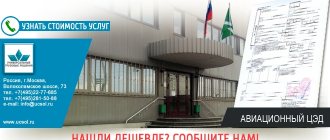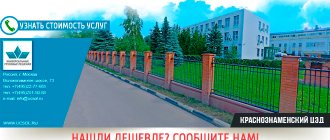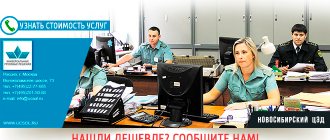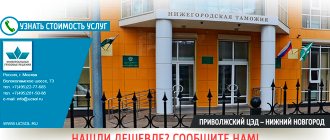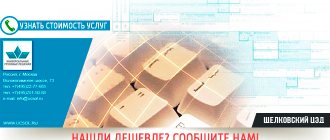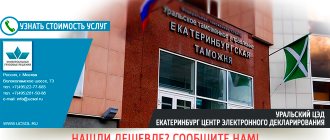A customs post (hereinafter referred to as CP) is the lowest link in a large structure called the Federal Customs Service of the Russian Federation. Subordinates to all higher authorities - TU, TO, FCS, President and Government. Provides direct control over the movement of people and goods across the border. Its activities are regulated by:
- By order of the Federal Customs Service dated September 4, 2014;
- the Constitution;
- Customs Code;
- Federal Law No. 311-FZ of November 27, 2010
Posts are divided by district. Moreover, if in one district there can be only one Customs Department, then there can be several posts in each of the Departments. And it is they who have the main role in declaring goods and controlling the import and export of goods.
Throughout this review, the following terminology and abbreviations may appear:
- Customs post - TP;
- Customs authority - TO;
- Customs Administration - TU;
- Federal Customs Service - FCS;
- Customs Union - CU;
- foreign economic activity - foreign economic activity;
- Customs Union - CU.
Regions of TP activity
As we mentioned above, each district has its own TU, and under it there are customs posts. The activities of each post are established by law and may include municipalities of various entities, transport infrastructure facilities (ports, airports, railway stations) and the largest industry enterprises. For example, TP Pogarsky operates on the territory of the Pogarsky municipality of the Bryansk region. And the Vnukovo-Gruzovoy TP is located on the territory of the airport.
There are 537 posts located throughout the Russian Federation, 93 of which are directly subordinate to the main customs authority - the Federal Customs Service (and are not subordinate to the Directorates). One of these 93rd TP is Vnukovsky.
Get a detailed and free consultation
Thank you for contacting our company! Our manager will contact you soon
Why do you need our help at the customs clearance point?
Working with professionals in the field of customs clearance is always a success. Cooperation with our company is a guarantee of providing high-quality services in an acceptable price segment. The key advantages of the organization are:
- wide customer base
- a wide base of partners who are among the leaders in customs clearance services
- huge geography of service provision (CIS countries, Asia, USA)
- individual approach
- acceptable price segment
- qualified support
- assistance at all stages of registration
- vast experience in customs clearance
Still have questions? Call! Information and selection of a specialist is carried out - free of charge! We guarantee an individual approach to each client and solutions to situations of any complexity. "RTB" Russian Customs Broker
— these are customs services of the highest class! "RTB" Russian Customs Broker
What types of customs posts are there?
Border and internal.
Currently, there are 388 border crossing points in the Russian Federation:
- automobile - 150 pieces;
- railway - 69;
- for air transport - 82;
- in seaports - 70;
- mixed type - 10;
- as well as 5 river ones, one lake and one pedestrian.
Local TP, bi- and multilateral.
- Multilateral TPs can usually be seen at sites with busy traffic. If this is a checkpoint only for vehicles, it is called a MAPP (a similar point with code 10206030 exists, for example, in the St. Petersburg region);
- 2-sided TPs are always installed at the border of two countries. Such points for vehicles are called DAPP.
- local crossing points also operate on the border of two countries, but are intended to allow civilians with registration to pass from one border area to another.
Road, railway, sea and air transport connections.
They can be located both on the border of neighboring countries and within the state.
Specialized TP.
As a rule, these are posts with increased security and professional staff. Through them the following is carried out:
- declaration of particularly significant goods and cargo - for example, radioactive elements, biological components and chemical elements (TP Krasnozavodsky);
- declaration of goods that will subsequently be used in the country’s agriculture or require inspection by phyto-sanitaries and veterinary supervision (TP Pogarsky).
- declaration of goods made of precious metals or stones;
- declaration of goods that are subject to excise duty;
- declaration of energy resources or specialized equipment to ensure the country's energy security.
Classification of customs posts by authority
TPs can form a legal entity among themselves or not. Which posts can be combined into a legal entity is decided only by the highest body of the customs service, the Federal Customs Service, after approval of the decision of the Ministry of Economy of the Russian Federation. If a post is assigned the status of a legal entity, its powers increase. The internal activities of such a structure are similar to those of a typical enterprise. The education staff must have at least 1 accountant.
What functions does a customs post perform?
- Inspection of cargo, goods and vehicles that cross the border with the Russian Federation, as well as their customs declaration.
- Border posts (BCPs) primarily monitor the documentary component of border crossing, that is, they check that documents are properly completed and submitted. They also have the authority to control the movement of goods from the external border to internal TPs.
- VTP provides further cargo escort (after the PTP). This structure of TPs and the powers entrusted to them made it possible to maximize the capacity of the state’s borders, increase trade turnover between countries and, accordingly, increase the efficiency of the country’s foreign economic activity.
Federal State Unitary Enterprise of the Federal Customs Service
Excise tax is a type of indirect tax on goods or services included in the price or tariff. The tax base for calculating excise duty is the cost of goods including VAT. Federal tax. Regulated by Chapter 22 of the Tax Code of the Russian Federation. Benefits are provided for in Art. 183 Tax Code of the Russian Federation. Regional and local authorities do not establish benefits.
Album of formats - an album of electronic forms of documents intended for organizing interaction between: - customs authorities and enterprises operating in the field of customs affairs (external album) when submitting information to customs authorities in electronic form; — structural units of customs authorities (internal album) in the process of customs clearance and customs control of goods when submitting information in electronic form.
ASMAP - Association of International Road Carriers - an organization that unites Russian enterprises and organizations that carry out international transportation of goods and passengers by road. ASMAP is a member of the International Road Transport Union (IRU), the International Federation of Freight Forwarding Associations (FIATA), the Association of Russian Freight Forwarders (AER), the International Chamber of Commerce (ICC), the Russian Chamber of Commerce and Industry (RF Chamber of Commerce and Industry), the Russian Union of Industrialists and Entrepreneurs (RSPP) ). AEB - Association of European Businesses was founded in 1995. This non-profit organization unites more than 630 companies from the European Union and Russia. The association's members include large multinational corporations, medium and small enterprises. All of them are united by the desire to establish reliable ties between the EU and the Russian Federation, as well as to contribute to improving the business climate in Russia.
Currency control is an integral part of the state’s foreign exchange policy in the field of organizing control and supervision of compliance with legislation in the field of foreign exchange and foreign economic transactions:
- control of the movement of currency values across the customs border;
- control of foreign exchange transactions;
- control over the fulfillment by residents of obligations to the state in foreign currency.
- control over the movement by persons across the customs border of the Russian Federation (with the exception of the perimeters of free customs zones and free warehouses) of national currency, securities in the currency of the Russian Federation, currency values;
- control over currency transactions related to the movement of goods and vehicles across the customs border of the Russian Federation;
- an integral part of a unified national policy in the field of organizing control and supervision of compliance with the legislation of the Russian Federation in the field of currency, export-import and other foreign economic transactions;
- control over compliance by residents and non-residents with the legislation of the Russian Federation and departmental regulations governing foreign exchange transactions and the fulfillment by residents of obligations to the state in foreign currency. Currency control is carried out in accordance with Russian legislation and the Customs Code of the Russian Federation, the Russian Federal Service for Currency and Export Control, as well as the customs authorities of the Russian Federation, headed by the Federal Customs Service of Russia, within their competence.
FEA - Foreign economic activity - the sphere of economic activity of the state, firms and enterprises related to trade on international markets, import and export of goods, as well as foreign investments and loans, as well as the implementation of joint projects with other countries.
The State Customs Committee of the Russian Federation is the State Customs Committee of the Russian Federation - a body of the federal executive power of the Russian Federation that directly manages customs affairs in the Russian Federation until March 9, 2004. The State Customs Committee of the Russian Federation was transformed into the Federal Customs Service of Russia (FCS of Russia) by Decree of the President of the Russian Federation of March 9, 2004 No. 314.
Declaration (in customs affairs) is a statement by the declarant in the prescribed form (written, oral, by electronic data transmission or other) to the customs authority of a given country of accurate information about goods and vehicles, or transported across its customs border, or the customs regime of which is changing, or in other cases determined by acts of national legislation, about their customs regime and other information necessary for customs purposes. In the Russian Federation, goods are declared to the customs authority of the Russian Federation, where their customs clearance is carried out. Vehicles, with the exception of sea, river and aircraft transporting goods, are declared simultaneously with the goods; sea, river and aircraft - at the port or airport of arrival to the customs territory of the Russian Federation or at the port or airport of departure from the customs territory of the Russian Federation, empty vehicles and vehicles carrying passengers - when crossing the customs border of the Russian Federation. The form and procedure for declaration, as well as the list of information required for customs purposes, are determined by the Federal Customs Service of the Russian Federation. Declaration of goods - submission to the customs authorities of goods and accompanying documents filled out in accordance with the rules for moving goods across the border.
DO-1, DO-2 - Report documents. Report DO-1 - a report on the acceptance of goods into a temporary storage warehouse (TSW). Report DO-2 - report on the issuance of goods from the temporary storage warehouse. Regulated by Order of the Federal Customs Service of the Russian Federation dated 04/06/2011 No. 715 “On approval of the Procedure for submitting documents and information to the Customs Authority when placing goods in a temporary storage warehouse (other places of temporary storage), placement (issue) in a temporary storage warehouse and other places of temporary storage, presentation reporting on goods in temporary storage, as well as the procedure and conditions for issuing permission from the customs authority for temporary storage of goods in other places (Registered with the Ministry of Justice of the Russian Federation on May 24, 2011 No. 20845).
UAIS TO - Unified Automated Information System of Customs Authorities
IDK - inspection and inspection complexes. IDKs allow you to obtain an X-ray image necessary for identifying goods without opening and unloading in a minimum time.
The ATA Carnet is an international customs document that replaces customs declarations and allows for duty-free, simplified and accelerated clearance of temporary import of goods in connection with exhibitions and fairs, as well as for the cross-border movement of product samples, professional equipment and some other categories of goods.
What are the benefits of Carneta ATA?
Using the ATA Carnet provides the following benefits:
- Expedited and cheaper customs clearance of temporarily imported goods, which boils down to the fact that a customs officer (free of charge during normal working hours) makes special marks on the spine of the corresponding sheet of the carnet, tearing off and keeping the rest of this sheet. Other customs documents provided for in this case by the national legislation of the relevant country are not issued;
- When temporarily importing goods, there is no need to provide various pledges, deposits, bank guarantees, etc. as security for payment of customs duties, since the carnet itself is such an international financial guarantee;
- The ATA carnet is valid for 1 year;
- The opportunity, with the appropriate registration of the ATA carnet, to visit not one, but several countries within one year.
The TIR Carnet is an international document whose function is to facilitate international cargo transportation by road through the territories of transit states. Issued by an authorized organization of the countries participating in the TIR Convention, for each individual vehicle, for a certain period of time. The TIR Carnet makes it possible, subject to all the rules and regulations of the convention, for a vehicle to move from the customs office of departure to the customs office of destination without paying import or export duties and taxes, at intermediate customs offices, and, as a rule, without inspection. To carry out international transportation of goods using a TIR Carnet, it is necessary to fill out the forms of the Carnet, which is issued for each shipment. Filling out the TIR Carnet is the responsibility of the carrier, who usually uses the services of the shipper or an agent company for this purpose. Each TIR Carnet consists of two cover pages, a yellow tear-out sheet and spine, a set of white and green tear-out sheets and spines containing a description of the cargo and customs invoices, and an incident report, which is filled out in the event of damage to seals or cargo in transit. Currently issued TIR Carnets contain 14 or 20 tear-off sheets, depending on the number of countries crossed during transport. For each transportation by one vehicle, one TIR Carnet is issued, valid until the completion of the transportation, subject to its registration by the customs office of the country of departure within the time limits established by the guaranteeing association. During the transportation process, customs authorities, as a rule, only control the safety of customs invoices and the external condition of the vehicle, remove the tear-off sheets of the TIR Carnet and issue the corresponding counterfoils, which remain in the book. However, any customs authority reserves the right to control transported goods.
TIR Convention - Customs Convention on the International Transport of Goods using a TIR Carnet - an international agreement adopted in 1975 under the auspices of the UN Economic Commission for Europe. The purpose of the Convention is to create a cargo transportation system that simplifies the procedures for processing cargo when crossing borders.
KPS is a set of software tools.
PI - Preliminary informing of customs authorities about goods imported into the customs territory of the Customs Union by road transport.
Checkpoints are located on sections of the state border in areas of transport flows (land, sea, air) and are located in the area of activity of customs posts. The activities of checkpoints are intended to resolve operational issues of customs clearance and customs control.
Customs clearance - (common) to carry out customs clearance of goods.
clearance - (common) customs clearance, i.e. the procedure for placing goods under a certain customs regime and ending the operation of this regime in accordance with the law.
Gray imports are goods that are transported into the country with understated tariff payments due to false declarations. Gray imports, from the point of view of the Customs and Criminal Codes, are the same smuggling, camouflaged as legal import of goods.
Free warehouse - In customs law:
- customs regime under which foreign goods are placed and used in appropriate premises (places) without the collection of customs duties, taxes, etc. without applying economic policy measures to these goods, and Russian goods are placed and used under the conditions applied to export in accordance with the customs regime for export, in the manner determined by the Customs Code of the Russian Federation;
- premises or other place where the customs regime of S.s. is in effect; is established subject to the availability of an appropriate license (license to establish a free warehouse). The arrangement of the premises (place) intended by S.S. should not interfere with customs control. If necessary, it is equipped with a double locking device, one of which is placed under the jurisdiction of the customs authority of the Russian Federation.
Owner S.s. is obliged to: comply with the terms of the license, comply with the requirements of the customs authorities of the Russian Federation; exclude the possibility of seizure of goods in the warehouse outside of customs control; provide officials of the customs authorities of the Russian Federation with access to goods located on the S.S., provide these persons with free premises, equipment and means of communication for customs control and customs clearance. With regard to operations carried out with goods, the period of their stay in the warehouse, ensuring compliance with the legislation of the Russian Federation on customs, accounting for goods, collection of customs duties, taxes, the application of economic policy measures and responsibility for paying customs duties, the customs regime of S.s. is identical to the free regime customs zone. When liquidating S. s. upon expiration of the license, from the moment (date) of making such a decision S.s. becomes a “belt storage” warehouse, the total shelf life of goods in which cannot exceed 6 months.
Customs clearance is part of the process of foreign trade transportation of goods, accompanied by the submission to the customs authority of the Russian Federation of a package of documents in accordance with the legislation of the Russian Federation, on the basis of which the customs authority makes a decision on the possibility of import (export, transit) of goods into the Russian Federation. Also part of the customs clearance process is making the necessary payments to the account of the customs authority (before filing a cargo customs declaration) as payment of fees, customs duties and taxes, which are calculated based on the terms of the agreement (contract), the cost of the cargo and the conditions of transportation, as well as additional information.
Customs clearance (customs clearance of goods) is a procedure for completing a set of formalities provided for by the customs rules of the country when importing (exporting) goods and vehicles. Customs clearance of goods includes customs clearance, payment of customs duties, all kinds of administrative actions related to the legalization of goods necessary for the import (export) of goods, customs permission for the import (export) of goods. In the conceptual apparatus of the Customs Code of the Russian Federation, the term T.o. absent.
The customs service is a tool for ensuring the protection of the economic interests of the state.
Customs value is the value of goods (goods and vehicles), determined in accordance with the law of the Russian Federation “On Customs Tariffs” and used when imposing duties on goods, maintaining customs statistics of foreign trade and special customs statistics, as well as applying other measures of state regulation of trade economic relations related to the value of goods, including the implementation of currency control of foreign trade transactions and bank settlements on them in accordance with the legislative acts of the state; is the basis for calculating customs duties, excise taxes, customs duties and value added tax. System for determining T.s.t. (customs assessment of goods) is based on the general principles of such assessment accepted in international practice and applies to goods imported into the customs territory of the Russian Federation. The procedure for its application is established by the Government of the Russian Federation on the basis of the provisions of the Russian Federation Law “On Customs Tariffs”. The procedure for determining the T.S.T. exported from the customs territory of the Russian Federation is also established by the Government of the Russian Federation. T.s.t. declared by the declarant to the customs authority of the Russian Federation when moving across the customs border of the Russian Federation. Its determination by the declarant is made in accordance with the methods for determining T.s.t. established by the law of the Russian Federation “On Customs Tariffs”. The procedure and conditions for declaring the customs value of imported goods, as well as the form of the customs declaration, are established by the Federal Customs Service of Russia in accordance with the legislation of the Russian Federation. Monitoring the correctness of determination of T.s.t. carried out by the customs authority of the Russian Federation, performing customs clearance of goods. Information provided by the declarant when applying for T.s.t., defined as constituting a trade secret or being confidential, can be used by the customs authority of the Russian Federation exclusively for customs purposes and cannot be transferred to third parties, including other government bodies, without the special permission of the declarant, for except in cases provided for by the legislation of the Russian Federation.
Customs cooperation is a set of measures for interaction with government authorities of foreign states and international organizations in the field of customs affairs in general and customs clearance and control procedures in particular. Issues of customs cooperation are under the jurisdiction of the Customs Cooperation Department of the Federal Customs Service of Russia.
The Regional Customs Administration of the Russian Federation is a customs authority of the Russian Federation, which is a law enforcement agency that directly carries out customs business in the territory of the region of the country. The regional customs department operates on the basis of regulations approved by the Federal Customs Service of Russia. The creation, reorganization and liquidation of regional customs departments is carried out by the Federal Customs Service of Russia.
Customs payments - customs duties, taxes, customs fees, fees for issuing licenses, fees and other payments collected in the prescribed manner by the customs authorities of the Russian Federation. Customs payments include various types of customs duties, taxes, customs duties, payments and other payments collected in accordance with the established procedure by the customs authorities of the Russian Federation. When moving across the customs border of the Russian Federation and in other cases established by the Customs Code of the Russian Federation, the following fees are paid:
- customs duty;
- value added tax;
- excise taxes;
- fees for issuing licenses and renewing them;
- fees for issuing a qualification certificate of a customs clearance specialist and renewing its validity;
- customs fees for customs clearance;
- customs fees for storing goods;
- customs fees for accompanying goods;
- fee for information and consultation on customs matters;
- fee for making a preliminary decision;
- fee for participation in customs auctions.
Customs duties are paid: directly by the declarant or other interested party; before acceptance or simultaneously with acceptance of the customs declaration; in the currency of the Russian Federation or in foreign currencies, the rates of which are quoted by the Central Bank of the Russian Federation, with the exception of cases where such a payment can only be paid in foreign currency. In relation to goods sent by international mail, etc. are paid to the state communications enterprise, which transfers these payments to the accounts of the customs authorities of the Russian Federation in the manner determined by the State Customs Committee of the Russian Federation jointly with the Ministry of Communications of the Russian Federation and the Ministry of Finance of the Russian Federation.
The Customs Code of the Russian Federation is a systematized single legislative act that defines the legal, economic and organizational foundations of customs affairs in the Russian Federation and is aimed at protecting its economic sovereignty and security, enhancing ties between the Russian economy and the world economy, ensuring the protection of the rights of citizens, business entities and government bodies and compliance their duties in the field of customs affairs.
A customs post is a customs authority that is a law enforcement agency and directly carries out customs business. The customs post operates on the basis of regulations approved by the Federal Customs Service of Russia. The creation, reorganization and liquidation of customs posts is carried out by the regional customs department.
Customs regime - in a broad sense - regulation applied to goods crossing the state border. According to the legislation of the Russian Federation, a set of provisions (legal provisions) defining the status of goods and vehicles moved across the customs border of the Russian Federation, provided for by the Customs Code of the Russian Federation, determining the status of goods and vehicles moved across the customs border of the Russian Federation. In accordance with the customs regime, goods and vehicles are moved across the customs border of the Russian Federation, and these goods and vehicles are used and disposed of. A person has the right at any time to choose any customs regime or change it to another, regardless of the nature, quantity, country of destination or country of origin of the goods. If the Labor Code of the Russian Federation does not provide for provisions regulating certain issues of application of the customs regime, the Government and the Federal Customs Service of Russia, within the limits of their competence, have the right, pending the adoption of the relevant legislative acts of the Russian Federation, to determine the features of the legal regulation of customs regimes, as well as to establish customs regimes not provided for by the Labor Code RF. For the purposes of customs regulation, the following types of customs regimes for goods and vehicles are established in the Russian Federation:
- release for free circulation;
- re-import;
- transit;
- bonded warehouse;
- duty free shop;
- processing in customs territory;
- processing under customs control;
- temporary import (export);
- free customs zone;
- free warehouse;
- processing outside the customs territory;
- export;
- re-export,
- destruction;
- refusal in favor of the state.
Customs duties - mandatory and optional, permanent and temporary fees (statistical, stamp, license, parcel, for sealing, stamping, warehousing and safety of goods, etc.), collected in the prescribed manner when moving across the customs border of a given country. In the Russian Federation, customs duties (their list is determined by the Customs Code of the Russian Federation) are paid to the customs authorities of the Russian Federation in foreign and (or) national currency along with customs duties and other customs payments.
Customs is a state institution (state body, public service, customs authority) that ensures the procedure for moving goods and vehicles, things and other items across the customs border, applying customs regimes, collecting customs payments, carrying out customs control and customs clearance, collecting and processing information on transported goods and vehicles, initiating criminal proceedings for the commission of customs crimes, conducting inquiries and carrying out operational investigative activities, using the controlled delivery method, monitoring the implementation of sanitary and quarantine rules, etc.; usually located at seaports, airports and on land borders where water, rail and road crossings occur. In the Russian Federation, T. is a law enforcement agency, is part of the unified system of customs authorities of the Russian Federation and, acting on the basis of provisions approved by the Federal Customs Service of the Russian Federation (FCS of Russia), directly carries out customs business. The creation, reorganization and liquidation of the Trade Union of the Russian Federation is carried out by the State Government of the Russian Federation.
Customs office of destination - internal or border customs office (customs post, point), where international transportation in a road vehicle using a TIR Carnet ends for all or part of the cargo; any customs office where transportation under the BTT procedure ends for the entire consignment of goods or part thereof.
Customs office of departure - internal or border customs office (customs post, point), where international transportation in a road vehicle using a TIR Carnet begins for all or part of the cargo; any customs office where transportation under the VTT procedure begins for the entire consignment of goods or part thereof.
TN FEA CU - Commodity nomenclature of foreign economic activity of the Customs Union - a classifier of goods used by customs authorities and participants in foreign economic activity for the purpose of carrying out customs operations. Adopted by the Customs Union Commission, the Federal Customs Service participates in the development and addition.
TROIS - Customs Register of Intellectual Property Objects. A copyright holder who has reasonable grounds to believe that there may be a violation of his rights in connection with the import of goods into the Russian Federation or their export from the Russian Federation or when performing other actions with goods under customs control, has the right to submit an application to the Federal Customs Service for inclusion of the corresponding intellectual property object in the customs register of intellectual property objects. The application must contain information:
- about the copyright holder, and if the application is submitted by his representative, also about the representative;
- about the object of intellectual property;
- about goods, the import of which into the Russian Federation or their export from the Russian Federation or the performance of other actions with which while they are under customs control, in the opinion of the copyright holder, entails a violation of his rights (detailed enough for customs authorities to identify such goods) ;
- on the period during which the customs authorities will take measures related to the suspension of the release of goods.
The application is accompanied by documents confirming the existence of the right to an object of intellectual property (certificate, agreement on alienation of exclusive rights, agreement on granting an exclusive license, other documents).
UV - remote release. This is a fundamentally new technology for customs clearance, in which the declaration is submitted to the internal customs post, and the goods themselves are stored at the border temporary storage warehouse, where their actual control is carried out. As a result, the goods are sent inside the country after they have been released. CED - Electronic Declaration Center. Since January 2011, the Federal Customs Service of Russia has been creating new customs posts - electronic declaration centers. The main task of the EDC is to carry out customs clearance exclusively in electronic form. Declaration of goods can be carried out using “remote release” (RW) technology, which eliminates the need to be tied to a specific post for filing declarations for goods.
ED - Electronic declaration is a completely new type of interaction between participants in foreign trade activities and customs authorities, suggesting a higher culture and more efficient use of labor resources through technical means and information technology.
EDS - Electronic digital signature is a certain sequence of characters that is obtained as a result of a certain transformation of the source document (or any other information) using special software. The digital signature is added when sent to the source document. Any change to the original document makes the digital signature invalid. In practice, the digital signature is unique for each document and cannot be transferred to another document; The impossibility of forging an electronic digital signature is ensured by the very large amount of mathematical calculations required to select it. Thus, upon receipt of a document signed with an electronic signature, the recipient can be confident in the authorship and immutability of the text of this document. Digital signature is today a legally established procedure for the exchange of protected data via the Internet. The article of the law regulating the documentation of information ( Law 149-FZ ) states that an electronic message signed with an electronic digital signature (EDS) is recognized as equivalent to a document signed with one’s own hand, unless another regulatory act requires a paper medium.
What tasks should customs posts perform?
- The fastest but most careful inspection of cargo and their subsequent customs clearance.
- Personal inspection.
- Assistance in filling out documents.
- Inspection of documents of civil and legal entities, as well as identification of violations in the field of foreign trade activities.
- Registration of customs payments (duties, excise duties, taxes, etc.).
The functions and tasks of customs posts are described in more detail in FCS Order No. 1701 dated September 4, 2014, which was mentioned at the beginning of the review.
Calculation of the cost of cargo delivery
Calculate the approximate cost of cargo delivery by our company to Moscow
cost of delivery of your goods
will be:15,960€
Order
cost for a tilt car 82m3 This calculation is approximate and may vary up or down depending on seasonal and economic factors. Check with our specialists for the exact cost.
Application for cargo delivery services
Cancel
Thank you! Your application has been received, we will contact you soon!
Documents for the customs clearance point
Simply arriving at the customs control point for customs clearance is not enough. In order to undergo inspection in a timely manner, it is necessary to prepare the established package of documents for the customs clearance point, which fully reflect the condition of the cargo. To clear a consignment at a customs point, you will need:
- package of statutory documentation
- foreign trade contract (in the original and translated into the state language)
- invoice
- account platform
- invoice
- certificates and declarations of conformity
- receipts for payment of state duties
- customs and transit declarations
You can get advice on the required package of documents for the customs clearance point through the contact form on our website.
By leaving a request on our website, you will receive advice on customs clearance of cargo at any customs post - free of charge! "RTB" Russian Customs Broker
TP structure
Just as the post is a link in a large structure called the Customs Authorities, so it itself contains smaller links. As a rule, it consists of several departments - control and registration. That is, at one checkpoint the cargo is inspected, at another they are checked and documents are processed. This structure allows for a clear division of responsibilities between employees and increases TP throughput. The head of the post is appointed to the position not by the Department, but directly by the head of the Federal Customs Service. Other employees of the structure are hired or fired by a joint decision of the head of the post and the head of the territorial office (TU). Money for the maintenance of TP is allocated at the main department of the Federal Customs Service. The same body resolves the issue of liquidation of TP.
